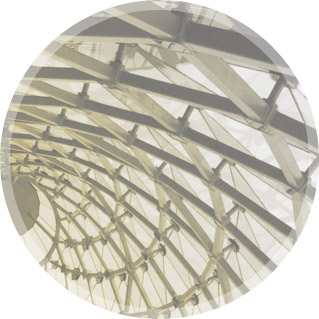Rice University
School of Architecture
The Rice School of Architecture promotes architecture as a cultural practice by preparing graduates to think, negotiate, and collaborate, generating designs and arguments that have historical resonance and contemporary relevance. The school's small size permits us to operate more as a think tank. Given that our graduates go on to become leaders in the field, whether as practitioners, faculty, politicians, editors, curators, or entrepreneurs, we cultivate individual research, initiative, and acumen. Our curriculum emphasizes the equal importance of verbal and visual communication, ensuring that students possess the tools they need to engage in practice and in the world around them.
http://architecture.rice.edu/
Setting
Located on a 300-acre tree-lined campus in Houston, Rice University is consistently ranked among the nation's top 20 universities by U.S. News and World Report. At once a university that expends almost $100 million annually on research, Rice is also a small college, with only 3,888 undergraduates, 2,610 graduate students, and 641 full time faculty. With its undergraduate student-to-faculty ratio of 6-to-1 and its residential college system, Rice builds close-knit communities across the campus, fostering individualized mentoring and lifelong friendships. Rice is closely connected to the resources of Houston, the fourth largest city in the country. Over the last twenty years, Houston has become one of the nation's most ethnically and culturally diverse cities in the U.S.: its population is 44% Hispanic, 26% European American, 24% African American, and 6% Asian and other. Remarkably cosmopolitan, over 90 languages are spoken in the city, and with 94 countries represented, Houston has the third-largest consular corps in the nation. This diversity provides a welcome context for the incoming freshman class of the entire university, which for the incoming class of 2018 includes 22 countries (the School of Architecture's incoming class represents 8 countries outside the U.S.).
School Philosophy
One of the greatest assets of the RSA is our size. If a prospective student wants to hide in the crowd, the RSA is the wrong school. From the day they enter, every student is encouraged to develop her or his own opinions and in every course in the curriculum, students are taught how to articulate those opinions, both verbally and visually. Because the RSA is small, faculty can work with every student to establish her or his particular voice, with the understanding that 'voice' is a combination of content, technique and style. Students can neither lead nor collaborate if they cannot first communicate. The school's curriculum balances a broad liberal arts education and focused professional study. The instruction fosters in students a sense of responsibility, relevance, and sound judgment with a focus on innovative design. Research ranges from the pragmatic to the theoretical and includes the metropolitan, the natural, the technical, and the aesthetic. By encouraging exploration, diversity and risk-taking among its faculty and students, the program promotes an on-going debate about the role of architectural design and designer (in the broadest sense) in society.

Programs
The RSA has two inseparable aims: to educate architects and to position our graduates as leaders in a rapidly changing world. The education of architects focuses on sharing knowledge…on a vibrant discussion of architecture's intellectual, formal, material, and representational composition. Positioning leaders centers on developing new knowledge…on affecting the contours of this new world. Generosity binds these aims to one another. Inside the RSA, the exchange of knowledge with aspiring architects depends upon the magnanimous sharing of intellectual culture among students, faculty, and visitors to the school. Beyond the school's boundaries, the RSA is a catalyst, an advocate for architects and architecture to step unflinchingly into public life. Taken together, these mandates underscore our goal of forming architects whose voices will reverberate across contemporary culture. Our ambitions are simple. RSA graduates will be prepared with knowledge. They will be perpetually curious about what we don't yet know. And they will be eager to propose the alternatives that possess an unyielding optimism about the future. The B.A.-B.Arch. professional track is the primary course of study for undergraduate architectural study at Rice. The curriculum has three stages: a foundation sequence, taken in the freshman and sophomore years; an intermediate stage in the junior and senior years; and finally the two year professional B.Arch. sequence that includes a preceptorship, a 9-12 month mentored internship in a professional office. Offices included in the RSA's Preceptorship program include SHoP, DS+R, Renzo Piano Workshop, Johnston Marklee, PLP and KPF in London, and OMA in Hong Kong. During their first four years' time, students must also complete university graduation requirements for the B.A. The RSA has two graduate programs leading to a first professional degree. Option 1 is a seven semester course of study for students with no or limited undergraduate background in architecture. Option 2 is a five semester course of study for students with substantial undergraduate backgrounds in architecture. The Option 1 and 2 Master of Architecture degrees are fully accredited by the National Architectural Accrediting Board (NAAB), qualifying our graduates to sit for professional licensing exams. The RSA's Options 1 and 2 programs prepare students through a core course sequence in design, history/theory, technology, and practice. The school also offers a broad selection of free electives, both from within the RSA and from across Rice University. Design studios are constructed around a four-studio sequence followed by a 'Totalization studio and then an Advanced Options studio. The required pre-thesis seminar recognizes our conviction that every student must step back and define his or her argument vis-à-vis architecture's contemporary position in the world. Students subsequently complete their studies either with a thesis design project or an additional studio in their final semester. The RSA also has a third graduate program, Present Future, a new post-graduate, two semester, special-topic course of study under the leadership of an RSA faculty member. This full-residency, research oriented program leads to a nonprofessional degree of Master of Arts in Architecture (M.A. in Architecture).

of Focus
1. Art & Design
2. Community Design
3. Cross-Cultural Contexts > Human Experiences
4. Design/Build
5. Digital Design & Visualization
6. History | Theory | Criticism
7. Materials and Construction
8. Urbanism

Opportunities

Facilities

Policies
Transfer Policies
No matter where you began your academic career, our resources and support will make transferring to Rice the best decision you’ve ever made. We seek applicants pursuing their first undergraduate degree and who have completed at least 12 credit hours with a cumulative 3.2 GPA before applying. Our transfer application process is thorough and our review is holistic.
For admission requirements, click here: (https://admission.rice.edu/apply/transfer)
*Portfolio is required for School of Architecture


